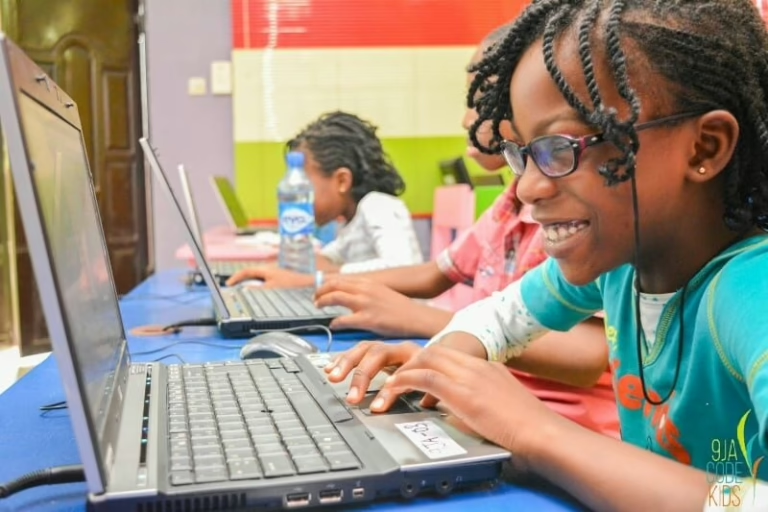Nigeria is set to revolutionize its secondary education with a groundbreaking national curriculum that emphasizes digital skills such as coding, Python programming, robotics, artificial intelligence, and entrepreneurship. However, this transformative agenda faces a significant challenge: a shortage of adequately trained educators to teach these advanced subjects across the country’s more than 50,000 secondary schools.
While the curriculum aims to arm students with essential 21st-century competencies, education experts warn that the lack of qualified teachers-especially in remote and rural regions-could hinder its successful rollout.
Scheduled for implementation in September 2025, the new curriculum introduces foundational courses like Python programming, Scratch coding, robotics, and internet research for junior secondary students. Senior secondary pupils will advance to more complex topics including artificial intelligence, data science, cybersecurity, and digital entrepreneurship. A strong emphasis on project-based learning is integrated throughout to foster hands-on experience, critical thinking, and creativity.
Despite government officials heralding the curriculum as a historic leap beyond conventional subjects, insiders reveal that many schools are still unprepared for the transition. Collins Uge, a teacher at a private school in Abuja, shared that his institution has yet to formalize any plans to adopt the new syllabus.
“Currently, we continue with the old curriculum. Finding teachers skilled in digital literacy areas like coding and Python is a major hurdle,” Uge explained. “The situation is even more challenging in rural schools, where young professionals trained in these fields are reluctant to work. Although the curriculum is a positive step, it requires time and resources to be effectively implemented.”
Isaac Moji, another educator, highlighted the scarcity of specialists as the most urgent obstacle. “While traditional subjects remain mostly unchanged, emerging disciplines such as AI and programming demand instructors with specialized expertise. These professionals are rare, and deploying them to underserved areas will be difficult, potentially jeopardizing the curriculum’s full adoption.”
At the junior secondary level, students will engage with subjects including Mathematics and Measurement, English Language, Integrated Science, Digital Literacy and Coding, Social Studies, Languages, Creative Arts, and Physical and Health Education. Senior secondary students will study advanced Mathematics, English and Communication, Sciences, Technology and Innovation, Social Sciences, Languages, Creative Arts and Innovation, Physical and Health Education, alongside Research and Project Work, with digital subjects forming a core component.
Parents have also voiced concerns that without focused investment in teacher training and incentives to attract qualified professionals-particularly to rural and marginalized communities-the digital literacy elements risk remaining theoretical rather than practical.
Francis Hange, a retiree from Lugbe, Abuja, remarked, “The vision is commendable, but teachers are the backbone of any curriculum. You cannot teach coding or AI effectively without instructors who are confident and experienced in these areas, and currently, such teachers are in short supply.”
Nevertheless, the government maintains that these reforms are vital to equip Nigerian students for a global economy increasingly shaped by technology, innovation, and entrepreneurship.
On Tuesday, the Federal Ministry of Education emphasized that the curriculum’s development involved extensive consultations nationwide, engaging all key stakeholders. The Nigerian Educational Research and Development Council (NERDC), under the Ministry’s oversight, spearheaded the review process.
The Ministry highlighted that the curriculum redesign employed competency- and outcome-based frameworks to enhance educational quality. Far from a rushed initiative, the reform followed a deliberate, inclusive, and phased approach to ensure national ownership and global relevance.
Folasade Boriowo, the Ministry’s spokesperson, explained that the process began with a comprehensive needs assessment across 12 states, identifying systemic gaps. This was followed by dialogues in all six geopolitical zones, incorporating feedback from students, educators, parents, civil society, employers, religious and traditional leaders, policymakers, and development partners.
“Their contributions shaped a curriculum framework aligned with national policies, development goals, and societal aspirations. This framework was officially endorsed at the 68th National Council on Education meeting on October 10, 2024,” she said.
The meeting, chaired by the Honourable Minister of Education and attended by Commissioners of Education, SUBEB chairpersons, professional bodies, civil society organizations, and development partners, ensured broad legitimacy and acceptance.
Curriculum development involved subject matter experts, teacher trainers, industry professionals, and curriculum specialists nationwide. The process included four technical phases: content selection and standardization, drafting, review and refinement, and final editing.
Since the National Council on Education’s approval, the Ministry has been rolling out the curriculum in stages over the past nine months. This has included pilot programs in select schools, teacher orientation sessions, and comprehensive training delivered both in-person and online to prepare educators for effective classroom instruction.
The Ministry reassures Nigerians that with continued diligence and stakeholder engagement, the updated curriculum will be smoothly integrated across schools.
However, the coming months will be pivotal in determining whether this ambitious initiative translates into meaningful educational outcomes or remains an aspirational plan awaiting the development of necessary human resources.

















